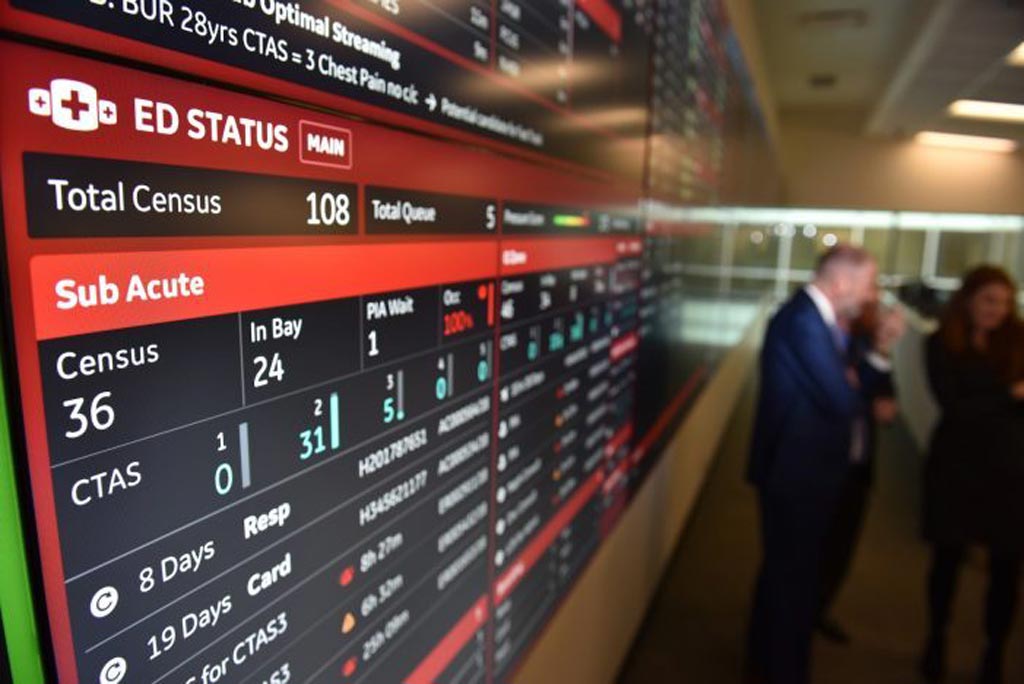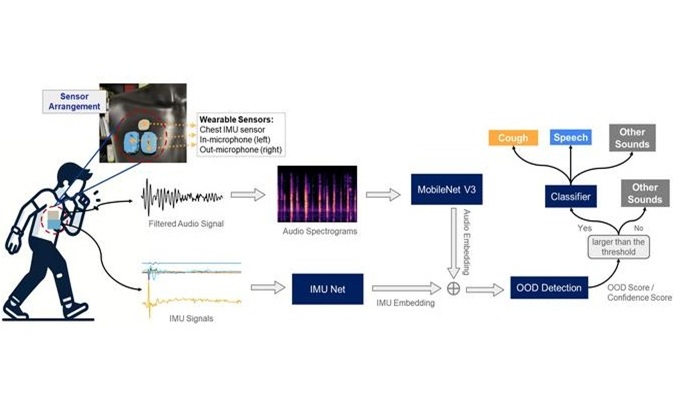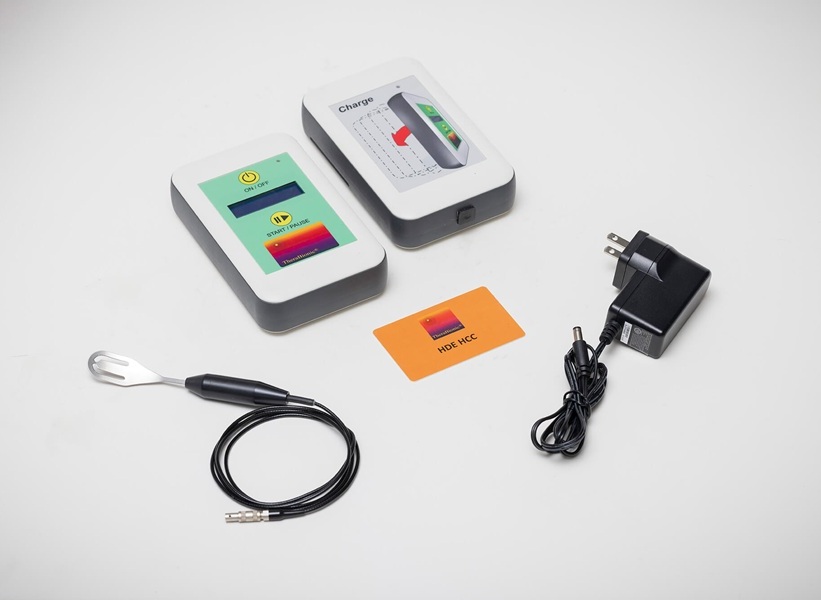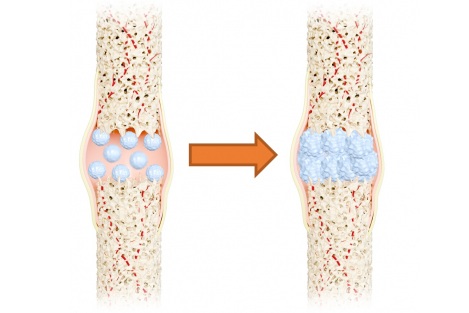GE Healthcare to Implement First AI-Powered Hospital Command Centers
|
By HospiMedica International staff writers Posted on 15 Oct 2018 |

Image: The AI-powered command center will be designed to bring all elements of a patient’s hospital experience together (Photo courtesy of Business Wire).
GE Healthcare (Chicago, IL, USA) is collaborating with hospital service providers in Europe and the US for implementing an artificial intelligence (AI)-powered command center to effectively and efficiently synchronize all elements of a patient's hospital experience. The AI-powered system will support caregivers to enhance patient safety, orchestrate seamless care delivery and get patients back home sooner.
In the first of its kind in Europe, GE Healthcare is collaborating with Bradford Teaching Hospitals NHS Foundation Trust to build the command center at the Bradford Royal Infirmary (BRI) that will provide a clear, instant, and real-time overview across the 800-bed hospital and help staff make quick and informed decisions on how to best manage patient care. Up to 20 Trust staff based in the command center will monitor a “wall of analytics” that constantly pulls in streams of real-time data from the multiple systems at the hospital. Advanced algorithms will help staff to anticipate and resolve bottlenecks in care delivery before they occur, recommending actions to enable faster, more responsive patient care and better allocation of resources. The data will be displayed on multiple high definition screens in the command center - as well as on tablets and mobile devices, providing 24-7 support to busy medical teams across the hospital.
In the US, GE Healthcare has joined forces with CHI Franciscan Health to implement a NASA-style "Mission Control" command center, making it the first hospital system in the state of Washington – and the fifth globally – to utilize the leading-edge technology for improving patient care. The mission control center will use the power of AI and predictive analytics to optimize care coordination, speed care delivery, and improve the patient experience, while maintaining patient privacy. The powerful system works by looking at each individual hospital as part of a larger system, continually examining real-time data and using machine learning to recommend actions that can predict and prevent risk, balance staff workload, and streamline the discharge process so patients can get home sooner.
From the mission control center, licensed providers will monitor and leverage analytic apps, or "tiles," to optimize patient care operations at each facility, and trigger actions to best leverage resources across the system. Each tile is carefully crafted to solve a specific issue, taking into account the highly nuanced real-world challenges of caregivers and patients. For example, one tile will help streamline the discharge process by monitoring all patients scheduled for discharge and identifying and addressing "pinch points" that can cause significant and preventable delays. The key is that the real-time data in the tiles is predictive and actionable.
“Hospitals are increasingly looking to boost the efficiency of their operations so they can continue to deliver high quality care as patient volume increases. Command centers help to orchestrate the delivery of care across the organization, bringing consistency to processes, prioritizing actions, eliminating waste and predicting tomorrow’s pressure points,” said Mark Ebbens, European Command Center Lead at GE Healthcare.
"The purpose of any new technology in health care is to enable providers to deliver better care, bringing doctors and nurses closer to their patients," said Ketul J. Patel, CEO, CHI Franciscan Health. "Mission control's powerful predictive analytics identify potential issues and allow our care teams to proactively solve problems and improve care rather than react when issues arise. With the AI focusing on the important nuts and bolts of operational efficiency and care logistics, our caregivers can devote more time to providing the best care and delivering the best outcomes for our patients."
In the first of its kind in Europe, GE Healthcare is collaborating with Bradford Teaching Hospitals NHS Foundation Trust to build the command center at the Bradford Royal Infirmary (BRI) that will provide a clear, instant, and real-time overview across the 800-bed hospital and help staff make quick and informed decisions on how to best manage patient care. Up to 20 Trust staff based in the command center will monitor a “wall of analytics” that constantly pulls in streams of real-time data from the multiple systems at the hospital. Advanced algorithms will help staff to anticipate and resolve bottlenecks in care delivery before they occur, recommending actions to enable faster, more responsive patient care and better allocation of resources. The data will be displayed on multiple high definition screens in the command center - as well as on tablets and mobile devices, providing 24-7 support to busy medical teams across the hospital.
In the US, GE Healthcare has joined forces with CHI Franciscan Health to implement a NASA-style "Mission Control" command center, making it the first hospital system in the state of Washington – and the fifth globally – to utilize the leading-edge technology for improving patient care. The mission control center will use the power of AI and predictive analytics to optimize care coordination, speed care delivery, and improve the patient experience, while maintaining patient privacy. The powerful system works by looking at each individual hospital as part of a larger system, continually examining real-time data and using machine learning to recommend actions that can predict and prevent risk, balance staff workload, and streamline the discharge process so patients can get home sooner.
From the mission control center, licensed providers will monitor and leverage analytic apps, or "tiles," to optimize patient care operations at each facility, and trigger actions to best leverage resources across the system. Each tile is carefully crafted to solve a specific issue, taking into account the highly nuanced real-world challenges of caregivers and patients. For example, one tile will help streamline the discharge process by monitoring all patients scheduled for discharge and identifying and addressing "pinch points" that can cause significant and preventable delays. The key is that the real-time data in the tiles is predictive and actionable.
“Hospitals are increasingly looking to boost the efficiency of their operations so they can continue to deliver high quality care as patient volume increases. Command centers help to orchestrate the delivery of care across the organization, bringing consistency to processes, prioritizing actions, eliminating waste and predicting tomorrow’s pressure points,” said Mark Ebbens, European Command Center Lead at GE Healthcare.
"The purpose of any new technology in health care is to enable providers to deliver better care, bringing doctors and nurses closer to their patients," said Ketul J. Patel, CEO, CHI Franciscan Health. "Mission control's powerful predictive analytics identify potential issues and allow our care teams to proactively solve problems and improve care rather than react when issues arise. With the AI focusing on the important nuts and bolts of operational efficiency and care logistics, our caregivers can devote more time to providing the best care and delivering the best outcomes for our patients."
Latest Business News
- Philips and Masimo Partner to Advance Patient Monitoring Measurement Technologies
- B. Braun Acquires Digital Microsurgery Company True Digital Surgery
- CMEF 2025 to Promote Holistic and High-Quality Development of Medical and Health Industry
- Bayer and Broad Institute Extend Research Collaboration to Develop New Cardiovascular Therapies
- Medtronic Partners with Corsano to Expand Acute Care & Monitoring Portfolio in Europe
- Expanded Collaboration to Transform OR Technology Through AI and Automation
- Becton Dickinson to Spin Out Biosciences and Diagnostic Solutions Business
- Boston Scientific Acquires Medical Device Company SoniVie
- 2026 World Hospital Congress to be Held in Seoul
- Teleflex to Acquire BIOTRONIK’s Vascular Intervention Business
- Philips and Mass General Brigham Collaborate on Improving Patient Care with Live AI-Powered Insights
- Arab Health 2025 Celebrates Landmark 50th Edition
- Boston Scientific Acquires Medical Device Company Intera Oncology
- MEDICA 2024 to Highlight Hot Topics of MedTech Industry
- Start-Ups To Once Again Play Starring Role at MEDICA 2024
- Boston Scientific to Acquire AFib Ablation Company Cortex
Channels
Critical Care
view channel
Origami Robots to Deliver Medicine Less Invasively and More Effectively
Delivering medicine to ulcers or other internal sites often requires invasive procedures that can disrupt surrounding tissues and lengthen recovery times. Traditional magnetic actuators used in soft robotics... Read more
Improved Cough-Detection Technology Aids Health Monitoring
Coughing serves as an important biomarker for tracking a variety of conditions and can help monitor the progress of respiratory diseases or predict when someone’s asthma is being exacerbated.... Read moreSurgical Techniques
view channel
Novel Glue Prevents Complications After Breast Cancer Surgery
Seroma and prolonged lymphorrhea are among the most common complications following axillary lymphadenectomy in breast cancer patients. These postoperative issues can delay recovery and postpone the start... Read more
Breakthrough Brain Implant Enables Safer and More Precise Drug Delivery
Delivering medication directly to specific regions of the brain has long been a major challenge in treating neurological disorders. Current implants and infusion systems typically reach only one or two... Read morePatient Care
view channel
Revolutionary Automatic IV-Line Flushing Device to Enhance Infusion Care
More than 80% of in-hospital patients receive intravenous (IV) therapy. Every dose of IV medicine delivered in a small volume (<250 mL) infusion bag should be followed by subsequent flushing to ensure... Read more
VR Training Tool Combats Contamination of Portable Medical Equipment
Healthcare-associated infections (HAIs) impact one in every 31 patients, cause nearly 100,000 deaths each year, and cost USD 28.4 billion in direct medical expenses. Notably, up to 75% of these infections... Read more
Portable Biosensor Platform to Reduce Hospital-Acquired Infections
Approximately 4 million patients in the European Union acquire healthcare-associated infections (HAIs) or nosocomial infections each year, with around 37,000 deaths directly resulting from these infections,... Read moreFirst-Of-Its-Kind Portable Germicidal Light Technology Disinfects High-Touch Clinical Surfaces in Seconds
Reducing healthcare-acquired infections (HAIs) remains a pressing issue within global healthcare systems. In the United States alone, 1.7 million patients contract HAIs annually, leading to approximately... Read moreHealth IT
view channel
















